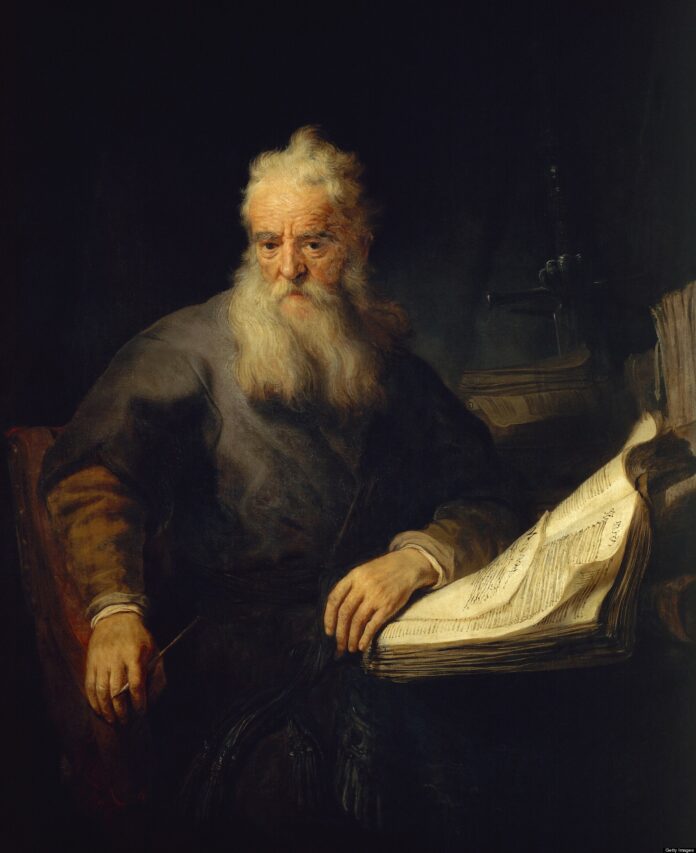Elizabeth Oldfield, the former director of religion and society think tank Theos who hosts The Sacred podcast, where she has interviewed a range of celebrities from Conservative MP Miriam Cates to rock star Nick Cave, has just had a book published which is being heavily plugged by The Church Times.
The paper ran an extract from Fully Alive, Tending to the Soul in Turbulent Times, in its May 24 edition. This followed an enthusiastic review from the transgender Archdeacon of Bolton and Salford, Rachel Mann.
‘Oldfield’s book is part spiritual memoir and part self-help manual, and it takes its title and impetus from that famous line of St Irenaeus: “The glory of God is a human being fully alive.” Where it finds its nuance and weight is in how tenderly it handles that claim. This is no pious manifesto. She describes the book as “my search for a deep life, for a place to steady myself amid the waves”. Indeed, the excellence of Fully Alive lies in its thoughtful consideration of the trip-hazards placed in the path of human flourishing in this era of chastened faith,’ Mann wrote in The Church Times on May 17.
At the other end of the theological spectrum from Mann, Glen Scrivener, a prominent evangelical minister in the Church of England and host of the Speak Life podcast, enthused about Oldfield’s performance at a debate in London on May 14, Christian Revival: Fantasy or Reality?, chaired by the editor of UnHerd, Freddie Sayers. ‘Here’s the absolute highlight: an astonishing 60 seconds from @ESOldfield. It is THE mini-sermon our culture needs,’ Scrivener declared on X.
Oldfield argued eloquently that religious practice and an engaged brain are perfectly compatible. ‘The way you pay attention changes what you are able to see. Ritualised, communal, emotional, embodied forms of practice literally make it easier for you to see what is really there. I think God is really there. I think there is a logic of love in the universe that wants to meet us,’ she said.
On the issue now dividing the Church of England, the services of blessing for same-sex couples proposed by the House of Bishops which the General Synod voted for in February 2023, Oldfield appears to stand above the argument. The church she attends in south-east London, like many C of E churches, is deeply divided on this issue.
On Palm Sunday (March 24), Oldfield was the preacher at her church. The vicar had spoken earlier in the service about a difficult meeting in which the divisions in the church on sexuality had surfaced. Oldfield referred to this controversy in her sermon.
She said: ‘Most Church of England churches in the country will be having difficult conversations around sexuality and that’s because of a decision that the Bishops made and which every individual church is having to respond to and what that has meant is that it has forced to the surface something that was there before but wasn’t quite so clear, which is that we don’t all read this book (the Bible) in the same way.’
She went on to say that the Bible was ‘written in multiple different centuries and multiple different places in different languages for different audiences for initially different purposes and it is beautiful and full of life and wild and complex and confronting and challenging and difficult’.
She described the situation in her church as ‘messy’. ‘The hardest place to be is where you are but it’s the only place where God can meet us. We are a bunch of fallible humans trying to work out how to love God and to love each other which is the great commandment,’ she said.
The novelist and Anglican writer, Francis Spufford, who has commended Oldfield’s book, had the intellectual honesty in 2021 to state his belief that the Apostle Paul was wrong to condemn practising homosexuality in Romans 1. Spufford wrote in the Chicago-based magazine, The Christian Century: ‘I value the work that’s been done to nuance and contextualize the Pauline condemnations in Romans. I see that there is a specific force to Paul condemning “men who lie with men” in the context of a slave-owning rape culture where high-status men felt entitled to help themselves to human flesh of every variety.’
But he went on say that he was not convinced ‘that the rule against gay sex was therefore never really intended to apply to sex between loving equals…I don’t think we’re really saying that Paul has been misunderstood for two millennia. I think we’re saying that Paul was wrong’.
Does that not capture the choice now facing C of E worshippers in churches like Oldfield’s – whether they will agree with the Millennial revisionists or with the clear apostolic teaching of the New Testament?
Julian Mann is a former Church of England vicar, now an evangelical journalist based in the UK.



